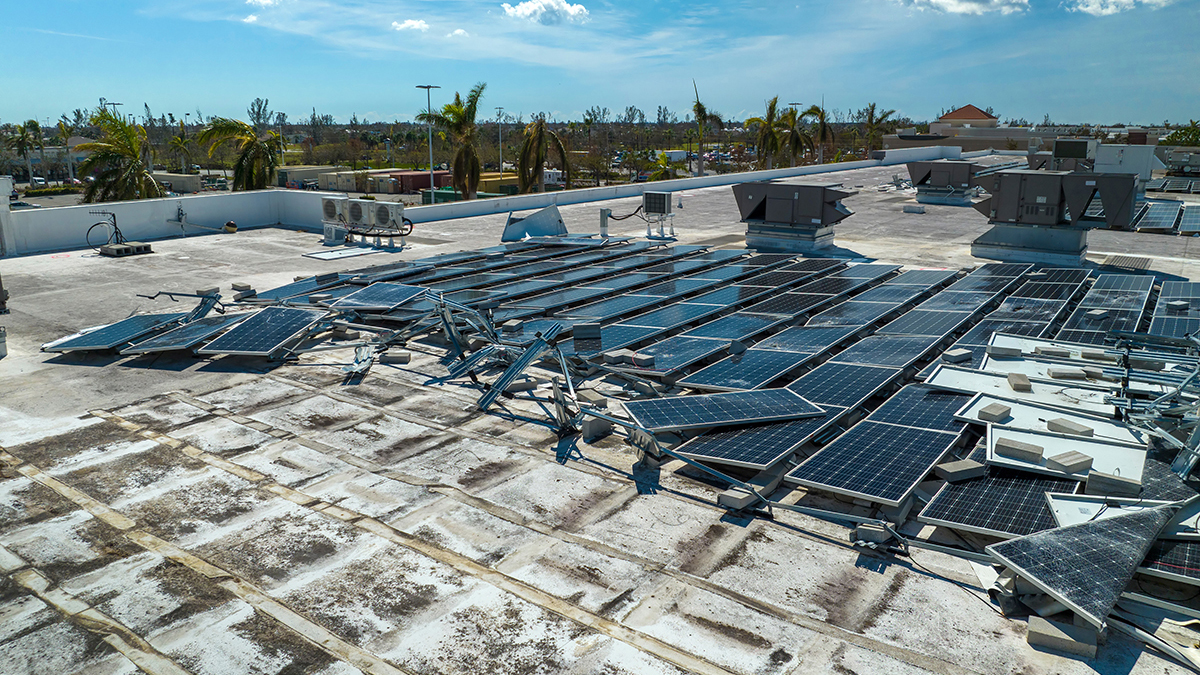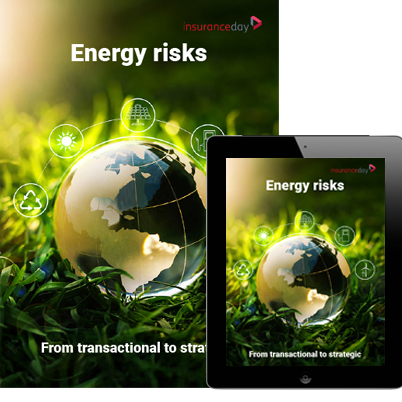
Energy risks
Energy is a peculiar beast. On the one hand it is essential to all aspects of life and therefore touches everything that needs to be insured. On the other, it can and does damage the planet, with re/insurers called upon to clean up the mess. In the jarring contexts of a softening market, extreme weather events and the transition to net zero, re/insurers face energy risks that are increasingly diverse and complex.

Risk, resilience and reinvention: the perils of the global energy transition
Clean energy growth continues, particularly for solar and offshore wind, while global climate risks intensify. Fossil fuel production also continues, raising issues about the need to reduce emissions globally. The insurance industry thus finds itself at the centre of a high-stakes transformation

Energy markets must focus on discipline and customer outcomes: Markel’s House
Markel International’s energy lead describes how insurers are navigating competing influences in a transitioning market

Carriers need to rethink energy exposure management
Re/insurers must start embedding energy exposure management into strategic underwriting and portfolio steering

Cargo underwriters face greater challenge than conflict
RSA’s senior cargo underwriter says insurers are well versed in geopolitical risks and capacity continues to enter the market regardless

Energy transition syndicate a ‘statement of intent’ from Axis
Syndicate 2050’s active underwriter, Elliot Lyes, discusses the potential of the newly launched syndicate amid the rapid growth of clean energy projects

US politics poses latest threat to wind energy: McGill’s Sexton
‘The development of new offshore wind projects in the US is pretty much dead for the next four years,’ McGill and Partners’ head of renewables, power and energy, Tom Sexton, says

Renewables upend traditional models: Beazley’s Sheppard
Rapid geographical and technological expansion in the renewables sector is exposing insurers to unfamiliar risks that are reshaping how coverage is structured, Beazley's renewable energy underwriter, Ben Sheppard, argues

Insurers must offer holistic cover for renewable energy: McLachlan
Serving the $15trn green energy market means dropping the siloed approach to insurance products, Fraser McLachlan, chairman of green transition underwriting business Tokio Marine GX, argues

When fact is stranger than fiction
Insurers work with facts, unlike the current leader of the free world. Future readers of the life and times of Donald J Trump will surely regard his aversion to clean energy as the most shocking of all his flaws

Deciphering the energy risk code: WTW’s Mackenzie
‘There can't be any certainty when we're governed by politicians who are thinking within election cycles, and we're trying to design the energy system for the next 50 years,’ argues global head of Willis Natural Resources

Lloyd’s seeing ‘big uptick’ in oil and gas clients: IQUW
IQUW’s lead energy underwriter, David Message, discusses the outlook for the carrier’s upstream property/control of well portfolio

Fac market compelled to follow declining energy rates: Acrisure Re’s Cooper
Acrisure Re’s head of power international facultative explains why there is enhanced scrutiny of facultative reinsurance purchases

Breaking down the clean energy numbers: Chaucer’s Schnorr
Specialty group’s head of marine and energy, Simon Schnorr, outlines how the role of re/insurers must expand to support the energy transition

US severe convective storms pose risk to solar
Severe convective storms are driving record insured losses in the US and posing growing risks to solar farms – innovative mitigation strategies and advanced risk assessments are vital for resilience

Renewable energy needs cyber insurers
Renewable energy plants bring a new set of challenges and opportunities for underwriters, Gallagher’s head of cyber risk management and director of renewable energy argue
You must sign in to use this functionality
Authentication.SignIn.HeadSignInHeader
Email Article
All set! This article has been sent to my@email.address.
All fields are required. For multiple recipients, separate email addresses with a semicolon.
Please Note: Only individuals with an active subscription will be able to access the full article. All other readers will be directed to the abstract and would need to subscribe.
